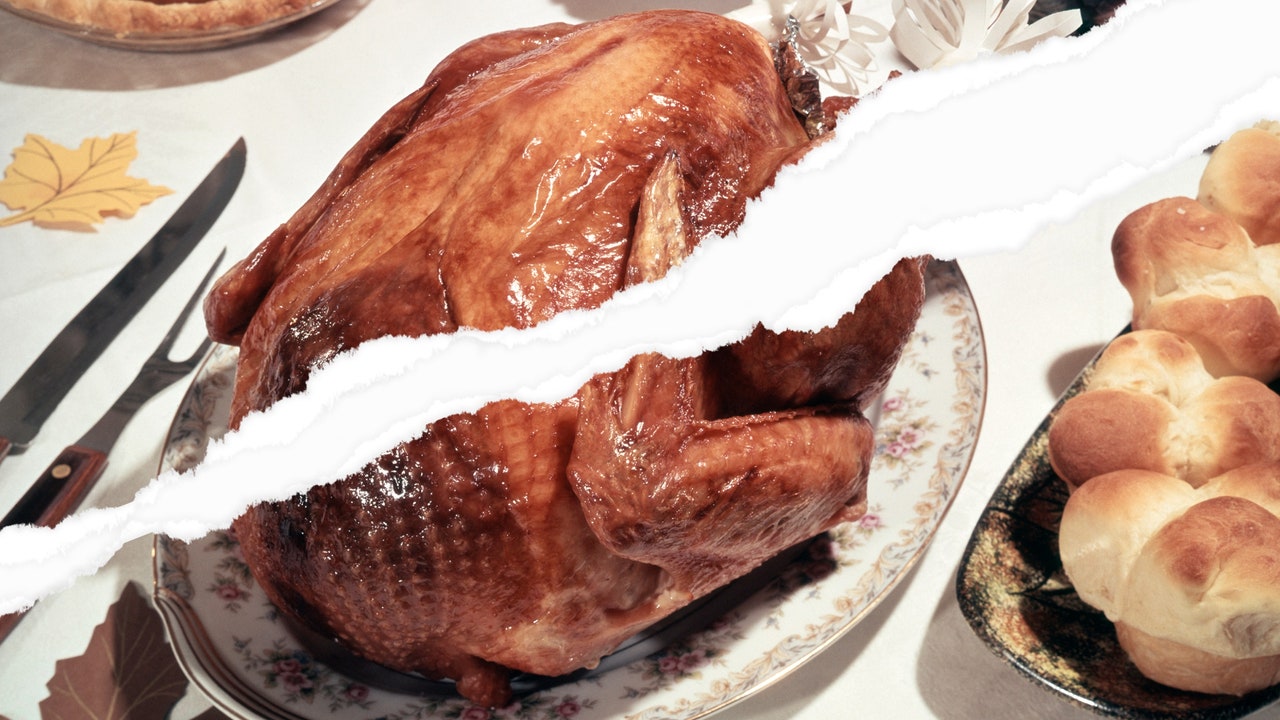I need to confess—a little secret that I can no longer keep hidden. I’m Indigenous and have always participated in Thanksgiving celebrations. There, I’ve said it! If you’re curious why this seems significant, understand that Indigenous people have a complicated connection with Thanksgiving. Why? It’s well-known that Native American people existed long before the arrival of European settlers in North America, and the so-called “peaceful” feast between the pilgrims and the Natives is one that has been heavily embellished. For many within the Indigenous community, the annual holiday is a painful reminder of how their land was taken away during colonization, how many of their ancestors were killed, and how their heritage was nearly eradicated. It’s understandable why Native individuals today are hesitant to share a meal and eat turkey: What is there to express gratitude for?
This year, however, I’ve decided not to express gratitude as well.
Growing up on Nipissing First Nation—my ancestral land in northern Ontario, Canada—my family always recognized Thanksgiving. My mother is one of 18 siblings, and our yearly ritual would involve gathering as a big, energetic, Ojibwe clan for a Thanksgiving meal at our grandmother Leda’s home, which acted as the assembly point for the entire eclectic mix. Due to the sheer number of people, I remember regularly eating Thanksgiving dinner on the floor, sitting cross-legged among my many cousins (seating at the table is reserved for the elders, obviously—they also got the first serving of food). On the menu would be all the customary Thanksgiving dishes: turkey, mashed potatoes, turnip, boiled carrots, massive pots of gravy. One year, my father even cooked a 40-pound turkey for the entire family, setting a record. But there would always be some Indigenous influence present, too: instead of dinner rolls, we had my Aunt Joanie’s legendary bannock. Moose meat pies were also always there, though I never indulged in that dish. (I’m a Native who doesn’t fancy wild meat—a transgression!).
Because Thanksgiving was something our family always observed, I never considered twice about how paradoxical it was: a gathering of Indigenous people essentially commemorating the history of their own hardships. Even more paradoxical: When I became older and moved to the U.S., my family, following the Canadian calendar and having celebrated Thanksgiving in October, frequently had to recreate it for me when I returned home in November. Even after learning about the problematic history of Thanksgiving, the celebration had become so ingrained in our family traditions that I didn’t question it. Even after my grandmother Leda passed, and our family ceased these colossal feasts—eventually, they became too difficult to organize—my parents, my sister, and I continued celebrating it. It turned into a norm, something we merely did. It was mostly centered on the food, because who doesn’t enjoy inducing a Tryptophan-induced nap? I still yearn for it at the thought.
This year, though, I am honoring the holiday differently. For one, my family is in Canada while I’m in New York, so celebrating with them would require a trip across the country. I’ve also come to realize that I actively don’t want to participate in Thanksgiving. I’ve spent too long being indifferent to things that don’t sit well with me.
